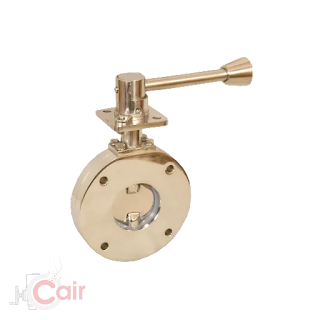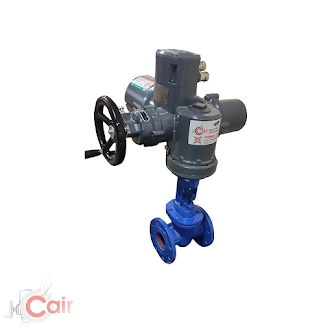How To Choose The Right Supplier Of Electrical Globe Control Valves
Introduction: Evaluating Potential Suppliers Of Electrical Globe Control Valves
When evaluating potential suppliers of electrical globe control valves, there are several factors to consider. First and foremost, it's important to look at the quality of each supplier's products. This includes the valves and associated components, such as actuators or control systems. It's also important to consider the supplier's track record when delivering products on time and meeting customer specifications.
Another key consideration is the supplier's technical expertise. This includes their ability to design and engineer custom solutions to meet specific customer needs and their industry standards and regulations knowledge. A supplier with a strong technical background can provide valuable insights and recommendations that can help ensure the success of a project.
Of course, price is always a consideration when evaluating potential suppliers. However, it's important to look beyond the initial cost and consider the total cost of ownership over the valve's life. This includes maintenance, repair, replacement costs, energy efficiency, and environmental impact.
Finally, it's important to consider the supplier's reputation and customer service. A supplier with a strong reputation for quality and reliability will likely provide excellent customer service and support, which can be crucial in a problem or emergency.
In summary, evaluating potential suppliers of electrical globe control valves requires careful consideration of factors such as product quality, technical expertise, price, the total cost of ownership, and reputation for customer service. By taking a comprehensive approach to supplier evaluation, companies can ensure that they select a supplier that meets their needs and provides the best possible value over the long term.
Why Is It Important To Carefully Consider All Options When Choosing A Supplier?
Choosing the right supplier can significantly impact a company's success. Therefore, carefully considering all options when choosing a supplier is important. One reason is that different suppliers offer different levels of quality, service, and expertise. By considering multiple options, companies can compare and contrast these factors and choose the supplier that best meets their needs.
Another reason why it's important to consider all options when choosing a supplier because the wrong supplier can result in high costs and delays. For example, a supplier that delivers low-quality products may require frequent repairs or replacements, which can be time-consuming and expensive. Similarly, an unreliable supplier or providing poor customer service may cause delays or production downtime.
Careful consideration of all options can also help companies find suppliers that offer innovative solutions or new technologies that can improve their operations. By staying up-to-date with the latest industry trends and innovations, companies can gain a competitive edge and improve their performance.
Finally, considering all options when choosing a supplier can help companies build strong and lasting relationships with their suppliers. A good supplier relationship can result in faster delivery times, better pricing, and improved communication.
In summary, carefully considering all options when choosing a supplier is important because it allows companies to compare and contrast quality, service, expertise, and innovation. It also helps companies avoid costly mistakes and delays and can lead to stronger relationships with their suppliers. By evaluating all options, companies can ensure that they choose the supplier that best meets their needs and contributes to their long-term success.
What factors should you take into account when Selecting a supplier?
Selecting the right supplier is crucial for the success of any business. The following factors should be taken into account when selecting a supplier:
Quality: The quality of the supplier's products or services is paramount. Assessing the quality of their products or services' quality is essential before committing.
Price: Price is another important consideration when selecting a supplier. However, the cheapest option is only sometimes the best one. It is important to evaluate the price concerning the quality of the products or services.
Reliability: A reliable supplier can consistently meet the required delivery times and fulfil orders correctly. Evaluating the supplier's track record regarding reliability and timely delivery is important.
Reputation: A supplier's reputation reflects the quality of their products and services. It is important to evaluate a supplier's reputation in the market through customer reviews and testimonials.
Location: The location of a supplier can affect the cost of transportation and delivery times. Choosing a geographically closer supplier can help reduce transportation costs and delivery times.
Capacity: A supplier's capacity to handle large orders is important. The supplier should be able to handle large orders without compromising quality or delivery times.
Technical Expertise: Suppliers with technical expertise can provide valuable insights and recommendations that can help improve product design, reduce costs, and improve product performance.
Customer Service: Excellent customer service is important for resolving any issues arising during the ordering and delivery. It is important to evaluate the supplier's customer service capabilities.
Financial Stability: It is important to evaluate the supplier's financial stability. This will ensure that the supplier can fulfil orders without any disruptions due to financial issues.
In summary, selecting the right supplier requires a comprehensive evaluation of several factors: quality, price, reliability, reputation, location, capacity, technical expertise, customer service, and financial stability. Considering these factors will help ensure the chosen supplier can provide high-quality products or services on time and within budget.
How To Perform A Cost/Benefit Analysis Of Different Suppliers
Performing a cost/benefit analysis of different suppliers can help businesses select the most suitable supplier. The following steps can be taken to perform a cost/benefit analysis:
Identify the relevant factors: The first step is to identify the relevant factors used to evaluate the different suppliers. These may include factors such as price, quality, reliability, delivery times, customer service, and any other important factors to the business.
Assign weights to the factors: Assigning weights to each factor will help to prioritize their importance. For example, the price may be given a higher weight than customer service.
Evaluate the suppliers: Evaluate each supplier based on the factors and their assigned weights. This can be done by gathering information through research, supplier visits, and customer feedback.
Score the suppliers: Score each supplier based on their performance on each factor. This can be done by assigning a numerical score to each factor based on the supplier's performance.
Calculate the cost/benefit ratio: The cost/benefit ratio is calculated by dividing the total score of each supplier by their total cost. The most cost-effective option is the supplier with the highest cost/benefit ratio.
Consider non-monetary factors: It is important to consider non-monetary factors such as reputation, technical expertise, and innovation. These factors can have a significant impact on the long-term success of the business.
Make a decision: After performing the cost/benefit analysis, consider the results and decide based on the most cost-effective and suitable supplier.
In summary, performing a cost/benefit analysis of different suppliers requires identifying relevant factors, assigning weights to those factors, evaluating the suppliers, scoring them based on their performance, calculating the cost/benefit ratio, and considering non-monetary factors. By following these steps, businesses can select the most suitable and cost-effective supplier, resulting in improved performance and reduced costs.
Wrapping Things Up The Importance Of Carefully Researching Potential Suppliers
Wrapping up the process of selecting a supplier is about more than just deciding based on a list of factors or a cost/benefit analysis. It is important to carefully research potential suppliers before making a final decision. The following points highlight the importance of this step:
Avoiding potential risks: By researching potential suppliers, businesses can identify risks, such as poor quality products or services, unreliable delivery, or financial instability.
Ensuring compatibility: Researching potential suppliers can help businesses ensure the supplier is compatible with their needs and requirements. This includes assessing their technical expertise, delivery capabilities, and customer service.
Building long-term relationships: Selecting a supplier is not a one-time event. Businesses should aim to build long-term relationships with their suppliers. Careful research can help identify potential suppliers that share similar values and can provide long-term benefits.
Cost savings: Researching potential suppliers can also help businesses identify cost-savings opportunities. This includes identifying suppliers with lower prices, better quality products, or more efficient delivery methods.
Improved performance: Selecting the right supplier can have a significant impact on the performance of the business. Careful research can help identify suppliers with technical expertise, innovative ideas, and a commitment to continuous improvement.
Competitive advantage: Selecting the right supplier can give businesses a competitive advantage. This includes access to unique products or services, faster delivery times, and better customer service.
In summary, carefully researching potential suppliers is essential in selecting a supplier. It can help businesses identify potential risks, ensure compatibility, build long-term relationships, identify cost savings opportunities, improve performance, and gain a competitive advantage. By taking the time to research potential suppliers, businesses can make informed decisions that will benefit them in the long run.
Cair Euromatic Automation is the leading Electrical Globe Control Valve Supplier and manufacturer in India. We offer various industrial valves like globe control valves, ball valves, butterfly valves, and many more.




Comments
Post a Comment